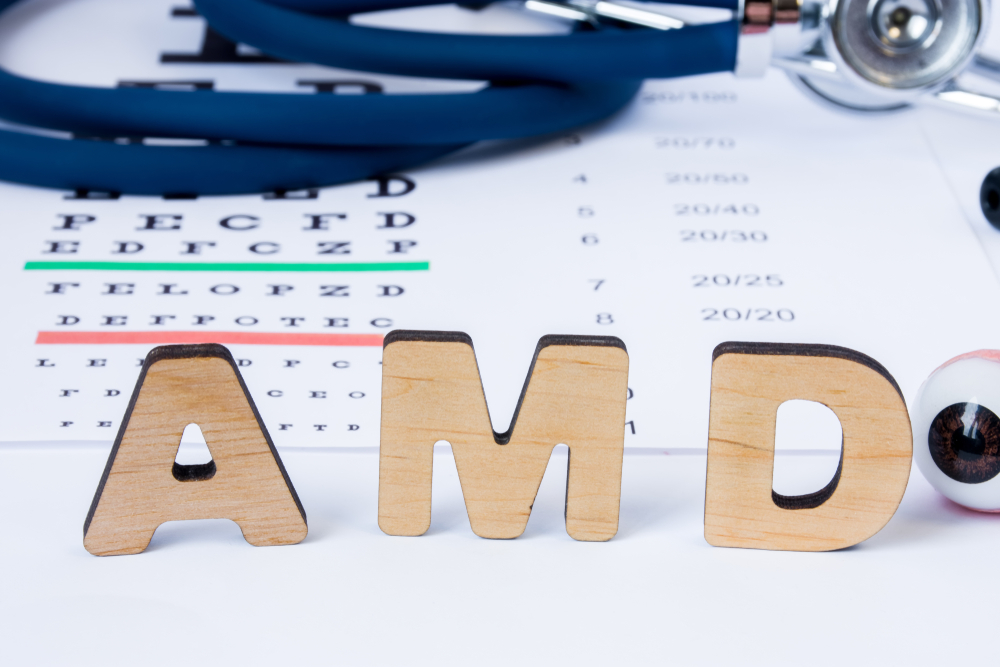
February is Age-Related Macular Degeneration Awareness Month, making it the perfect time to learn about this common eye condition that impacts central vision. Age-Related Macular Degeneration, also called AMD, is an eye condition that causes blurry or loss of central vision due to damage to the macula, which is part of the retina.
Keep reading to learn more about macular degeneration!
What is Macular Degeneration?
The macula is a small, sensitive area of the retina that allows you to see fine details clearly. Macular degeneration causes damage to the macula, causing your central vision to become blurry or fade over time.
As macular degeneration progresses, you may end up with a dark or empty area in the center of your vision.
There are two main types of macular degeneration:
Dry AMD
Dry macular degeneration is the most common type, accounting for a majority of cases. It develops slowly over time as light-sensitive cells in the macula break down.
Wet AMD
Wet macular degeneration is less common than dry macular degeneration, but it is also more severe. This type develops when abnormal blood vessels grow under the retina.
These vessels are weakly formed and fragile, so they can easily leak blood or fluid, causing rapid vision loss.
What is Age Related Macular Degeneration Awareness Month?
Since AMD is one of the leading causes of permanent vision loss in older Americans, February has been designated as Age Related Macular Degeneration Awareness Month by the American Academy of Opthalmology. The goal is to spread information and raise awareness about the signs, symptoms, and treatment options for macular degeneration.
How Can I Protect My Eyes From Macular Degeneration?
While AMD is an age-related eye condition, there are ways you can help reduce your risk:
- Don’t smoke and avoid secondhand smoke
- Maintain healthy nutrition with leafy greens and fish
- Exercise regularly to control weight and high blood pressure
- Wear UV-blocking sunglasses when outdoors
- Have regular comprehensive dilated eye exams
If you are at increased risk of developing macular degeneration, your eye doctor will want to see you for eye exams regularly. With early detection, you will be less likely to experience permanent vision damage.
Top 3 Warning Signs of Macular Degeneration
Catching macular degeneration early is important for preserving vision and slowing progression. Here are some of the most common early signs:
Vision is Missing or Blurry: Blurriness in your central field of vision is a hallmark sign of macular degeneration. This blurriness may come and go at first.
Straight Lines Appear Wavy: A sign like a pole or a door frame may appear crooked or distorted because of damage to your macula.
Loss of Central Vision: You may notice a dark, empty area taking up your central vision. This can make activities like reading very difficult.
You may also struggle to recognize the faces of loved ones in the advanced stages of the condition. If you notice any sudden vision changes like these, schedule an appointment with your eye doctor right away for an evaluation.
Are you experiencing changes in your vision? Schedule an appointment at Eyecare Medical Group in Portland, ME, today!





